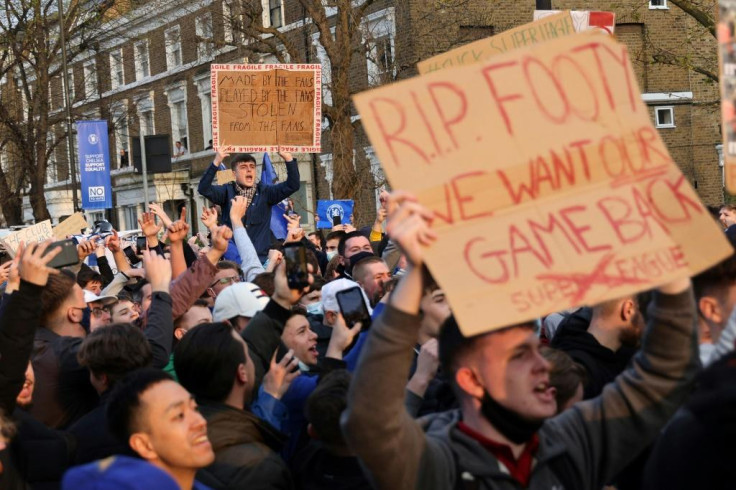Italy determined to ban Super League teams from Serie A
Despite its implosion, the football world has been rocked and reforms appear to be in motion on many fronts in Europe.
In the latest development on the European Super League controversy, the Italian soccer federation has apparently made moves to protect its future. The federation has reportedly added what is now being called an "anti-Super League" clause to its regulations on Monday. The said clause aims to expel clubs that will attempt to join any breakaway competitions in the future.
The "anti-Super League" clause does not just apply to the Super League. According to a report by Marca, the ban will be imposed on teams that will decide to participate in any "privately run competition" in the future. Such teams will be barred from playing in domestic leagues, which was something that the SL founders had been wanting to avoid. All 12 SL teams planned to participate in their domestic competitions on the weekends as usual, while replacing the UEFA Champions League during mid-week.
The new clause was unanimously approved by the FIGC council, which includes Inter Milan CEO Giuseppe Marotta. In Italy, Serie A leaders Inter, defending champions Juventus, and AC Milan were the teams that had initially signed up as founding members of the Super League.
Inter Milan pulled out of the competition soon after all six English clubs announced their departure following massive outrage from fans and pressure from UEFA, FIFA and numerous domestic federations. It may be remembered that UEFA immediately issued threats of barring teams as well as players form playing in domestic competitions, European tournaments and the FIFA World Cup.
"Those who feel they have to participate in competitions not authorized by the FIGC, FIFA or UEFA lose their affiliation," said FIGC president Gabriele Gravina.
Spanish giants Real Madrid and FC Barcelona have remained committed to the project, with Juventus, Milan and Atletico Madrid all stating that while they are off the project for now, they still believe that with better planning and some major reforms, they can proceed at a later date.
"At the moment, we don't have any news on who has remained and who has left the Super League. This rule applies to national licences. It's clear that if by June 21... someone should want to participate in competitions of a private nature, they will not take part in our league," said Gravina.
For this season, it appears that none of the teams will be facing immediate sanctions. Real Madrid, Chelsea and Manchester City, will be allowed to play the UEFA Champions League semi-finals with lone non-ESL team PSG.
Despite its implosion, the football world has been rocked and reforms appear to be in motion on many fronts in Europe.

© Copyright IBTimes 2025. All rights reserved.






















